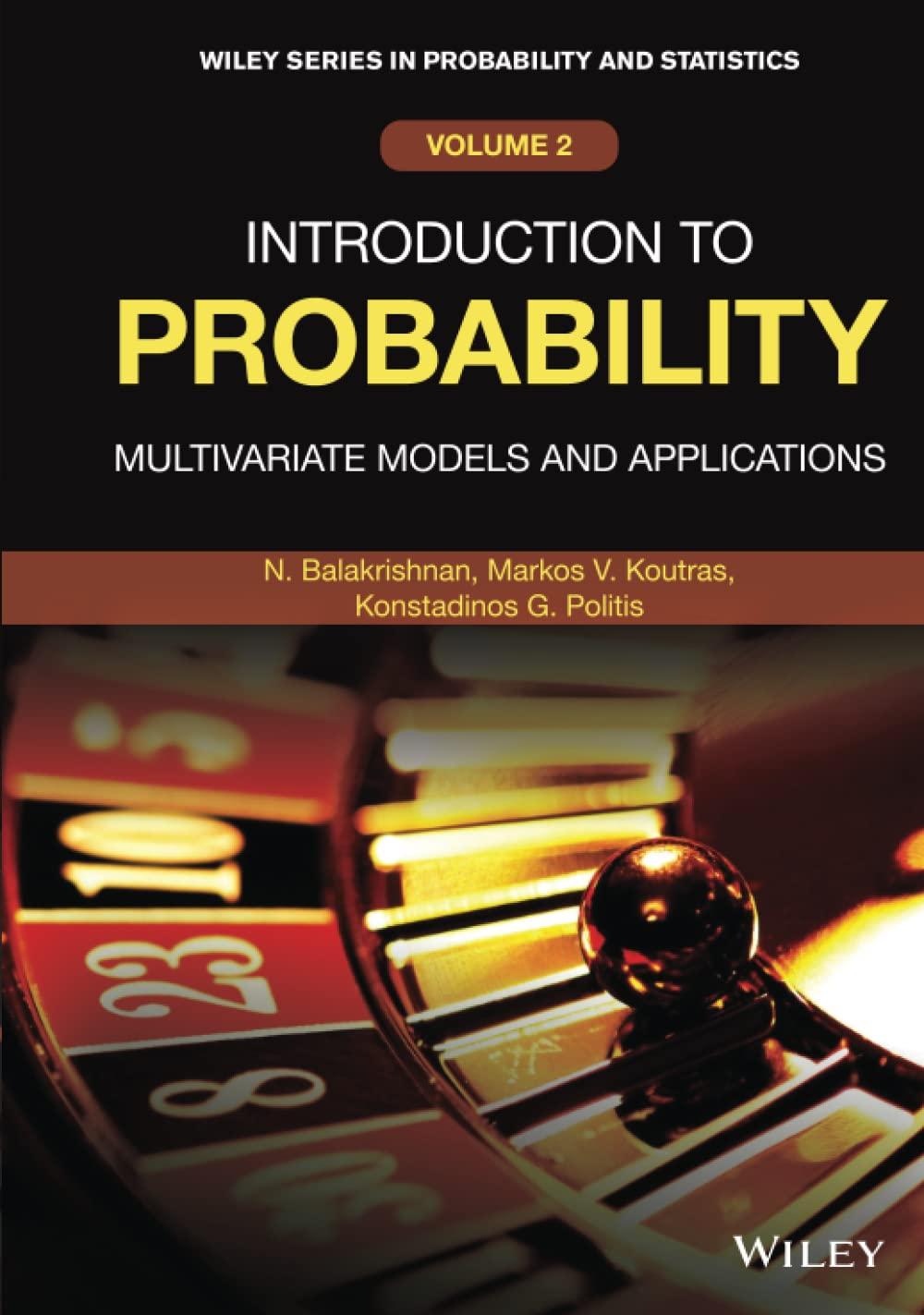Bill, Greg, and John are friends attending the same course in French translation at University and they
Question:
Bill, Greg, and John are friends attending the same course in French translation at University and they prepare for their exam. The course lecturer has recommended two textbooks, say A and B, to prepare for the exams, and the text they will have to translate will be either from textbook A or from B. Since none of them are too keen on spending a lot of time preparing for the exam, they decide to study only textbook A. The day before the exam they feel that if the exam is based on textbook A, each of them has a chance of 85% of passing the exam, independently of the other two, while if the exam is based on textbook B, each of them has a 30% chance of passing (again, independently of the other two). Further, they think the lecturer likes textbook A a bit more, and so there is a 60% chance that the exam is based on that book.
(a) What is the probability that Bill passes the exam, but the other two students fail?
(b) What is the probability that Bill passes the exam if we know that the other two students have failed?
(Hint: Let A1, A2, and A3 be the events that Bill, Greg, and John pass the exam, respectively. Define also the events E that the exam is based on textbook A and F that it is based on textbook B. In Part (i), for instance, we want the probability of the event A1A′
2A′
3 and, in order to find this, we need to condition upon whether E or F occurs. In fact, this example illustrates the idea of conditional independence between events. If we know which of F or E has occurred, then the events A1, A2, A3 are independent, but if we do not have that information, they are not independent.)
Step by Step Answer:

Introduction To Probability Volume 2
ISBN: 9781118123331
1st Edition
Authors: Narayanaswamy Balakrishnan, Markos V. Koutras, Konstadinos G. Politis






